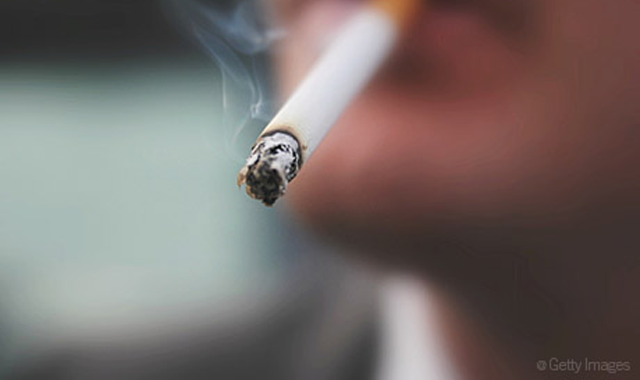Study finds smoking dangerously alters oral microbiome
A new study out of the NYU Langone Medical Center and the Laura and Isaac Perlmutter Cancer Center has determined that smoking drastically alters the oral microbiome, the mix of roughly 600 bacterial species that live in people's mouths.

A new study out of the NYU Langone Medical Center and the Laura and Isaac Perlmutter Cancer Center has determined that smoking drastically alters the oral microbiome, the mix of roughly 600 bacterial species that live in people's mouths.
The researchers say their analysis is the most comprehensive to date to examine the effects of smoking on the make-up and action of bacterial species in the human mouth based on precise genetic testing.
Related reading: New study shows smokers are at higher risk of losing teeth
Recent work in the field links imbalances in microbial populations in the gut to such immune disorders as Crohn's disease, as well as to some gastrointestinal cancers. Experts estimate that more than three-quarters of oral cancers are tied to smoking, but it remains to be seen whether smoking-related microbial differences in the mouth contribute to disease risk.
"Our study is the first to suggest that smoking has a profound impact on the oral microbiome," says study senior investigator and epidemiologist Jiyoung Ahn, PhD.
"Further experiments will be needed, however, to prove that these changes weaken the body's defenses against cancer-causing chemicals in tobacco smoke, or trigger other diseases in the mouth, lungs, or gut," says Ahn, an associate professor at NYU Langone and associate director of population sciences at its Laura and Isaac Perlmutter Cancer Center.
The NYU Langone team relied on mouthwash samples from 1,204 American men and women whose health is already being monitored as part of larger ongoing cancer risk studies funded by the National Institutes of Health and the American Cancer Society. Study volunteers were all age 50 or older and included 112 smokers, 571 former smokers (among whom 17 percent had quit within the past 10 years), and 521 people who never smoked. The team then used genetic tests and statistical analyses to tell apart the thousands of bacteria in each study participant's mouth.
Related reading: Study finds secondhand smoke exposure linked to increased dental decay in children
Importantly, the investigators found that the oral microbiome of smokers differed significantly from that of people who had never smoked and those who had quit smoking. The team also found that the oral microbiome of smokers bounces back after they quit smoking, with all former smokers (who had not smoked for at least 10 years) showing the same microbial balance as nonsmokers.
More than 150 bacterial species showed significantly increased growth in the mouths of smokers, while another 70 showed sharp decreases in growth. For instance, smokers had relatively fewer species of Proteobacteria (at 4.6 percent of overall bacteria in the mouth), than nonsmokers (at 11.7 percent), with Proteobacteria shown to be involved in the breakdown of toxic chemicals introduced by smoking. By contrast, smokers had 10 percent more species of Streptococcus than nonsmokers, with Streptococcus known to promote tooth decay.
Postdoctoral fellow and study co-lead investigator Brandilyn Peters, PhD, cautions that study data did not enable researchers to tell how long it actually takes former smokers to rebalance their oral microbiomes after they stop smoking. But, she adds, further experiments are planned to determine the precise timeline for microbiome recovery.
Related reading: Researchers find hookah smoking can lead to serious oral conditions
Ahn says their goal is to identify what happens biologically from smoking-related changes in the oral microbiome. The team also plans to investigate how these smoking-related changes might influence risk for various cancers of the mouth and other parts of the body.
The full study, “Cigarette smoking and the oral microbiome in a large study of American adults,” was published in the ISME (International Society for Microbial Ecology) Journal.
This article was reprinted from materials provided by NYU Langone Medical Center. Materials have been edited for content and length.